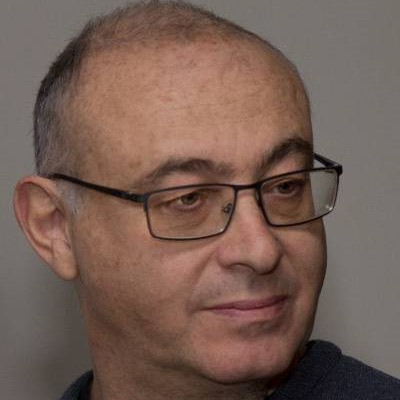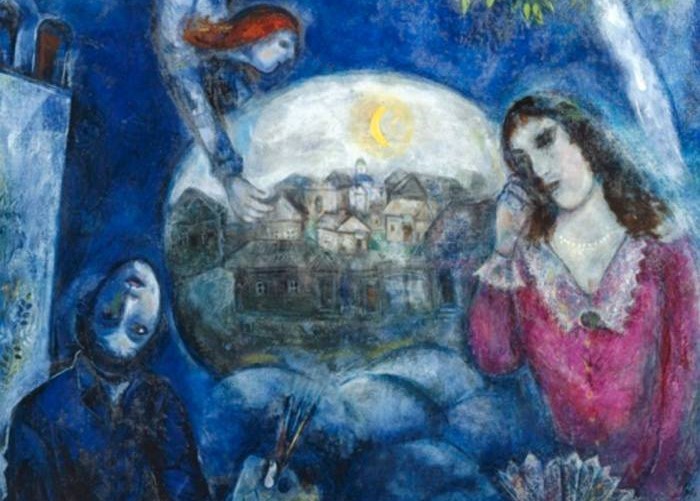About the Author:

Leonid Levinzon
Jerusalem
Leonid Levinzon is a writer, winner of the Russian Prize, and editor of Novyi Ierusalimsky Zhurnal, a literary magazine in Russian.

EVERYTHING DIES
Everything dies: cats, dogs, sparrows, pigeons. Cockroaches die! They die even when you don’t poison them. You get up in the morning, and there it is, lying upside down in the kitchen, with his whiskers off.
Our friend’s dog died – and it was young, just six years old, so they were sad about it for three months, then they took a new one. Another friend had a cat that died! Suddenly it stopped eating, the owners went to the vet, the vet took one look at it, and said:
“It’s got a bad tooth, you have to give it antibiotics.“
They bought antibiotics, so what – you think it helped? And the main thing – there is no visible damage. How can it die because of a tooth?
Forget cats! People die!
Recently, I read in a newspaper about a transportation accident – a family with six children died, and the editors happily placed their portraits in black frames on the front page.
And yesterday I was riding a bus and met an old acquaintance, a social worker at the hospital. The minute I looked at her, I knew she was upset. So, I had the impulse to ask her:
“Sofya, what happened?”
And Sofya told me what happened.
She was called to a dying seventeen-year-old boy. After two unsuccessful surgeries, his parents brought him from Russia. And it turned out to be too late. When the boy first appeared in the department, everyone fussed around him, smiling. Here’s a young boy, after all, so everyone wanted to say something warm to him. But as soon as they realized that nothing would help, they began to treat him only as a patient: bandages, drips, and goodbye. It’s dangerous in such cases to be attached to the soul. And the boy lies there, his eyes huge, whispering:
“Why? Why are they like that? What have I done to them?”
And then he burst into tears:
“If that’s how they are, fine, but I still love everyone!”
His poor parents ordered him a wish ambulance. It turns out that there is such a service, which lets you fulfill the request of a sick person, for example, to take them to the sea. So the boy asked to pet a dolphin.
He didn’t get to. He became quite ill, and the doctors ordered morphine to make him sleep and not wake up.
And just recently, an old man died. He was ninety-three years old. What did he think about before he died? About his children, his grandchildren, his wife, an overgrown pond behind their house, or how water flies run along the water surface in the summer? Or about the dairywoman, Aunt Lena, who traveled every day from her village to the city on a “cuckoo” train – there was this train with a pipe on a narrow gauge – cuckoo, cuckoo, cuckoo… Cuckoo, how long do I have left? Nothing’s left, my boy.
His doctors administered adrenaline and performed artificial respiration. They did all they could. They couldn’t save him. So they said to his wife:
“You have nothing to do here anymore.”
“It’s you who have nothing to do here, but I want to say goodbye,” said his wife.
Is ninety-three years a long time or a short time? Yesterday, he was here, talking. He left his glasses by the computer – they are still there. And today he is gone. Such a long life, and it passed so quickly.
My friend Ira had a big company when she was young. They lived rough – they drank, got stoned, and they all died early, leaving her alone. One day, we met, and Ira, choking with sobs, began to scream.
“Bastards, bastards,” she burst out. “Why did they die?” She shook her little fists. “Why?! They missed so much! The Internet, computers, smartphones, you name it! Why did they have to go?”
I’ve been thinking about it, people, and now I know what the problem is! The level of toxic substances in the air has risen. That’s why. It has been rising for a long time, but nobody has noticed. If it’s not global warming or cooling, who cares?
Now that I understand everything, all that’s left is to find a specialist to check, help, and find out – what is the reason for such an increase? And what do we need to do to stop these stupid deaths from happening again?
The only thing is, it must be a certified specialist. Maybe even a physicist. Yes, a physicist! Or perhaps a chemist? Or better yet, an astronomer!
I was walking down the street today and heard a girl blabbing happily:
“My dad doesn’t let me watch TV until tomorrow, and tomorrow is today, and there is a new series.”
I got down on my knees and cried.
DANDELION
I saw this girl. She always came with the same guy, who was dressed in a neat suit that looked almost indecent for these Levantine places; he was polite, with glasses and dry lips. The dissonance was his black hair, which sprawled like thistles. And I’ll tell you this, we are all in need of treatment, but this guy was just sick. Sick of literature. When he spoke, he rolled his eyes, gradually beginning to tremble, grabbing his interlocutor by the sleeve, and moaning lustfully:
“Borges, Borges, Borges, Borges…”
He could write poems, and sometimes even poemas*. In these poems and poemas, Greek heroes fought and died. Maybe even Jewish heroes. For a real poet, it doesn’t matter what his poems are about, as long as there are heroes and heroic deeds.
So why was she with him? Tall, brittle, with slightly elongated eyes, what was it that interested her in him? She smiled encouragingly when he read his poems filled with rumbling battle sounds, supported his intricate judgments about literature, and met his mother…. They were already staying together, and who knows whether it was the literary man who kept hesitating, or the girl, or maybe it was just his glasses that got in the way. Whatever it was, he finally mastered the upper part of her body: he unbuttoned her blouse, lifted her bra, and carefully stroked her breasts with his small, pale fingers. He held their firm weight in the palm of his hand and sighed, forgetting himself:
“Borges… that’s who had the power… You understand? The power…”
Probably because he was familiar to her, maybe they had studied together, and maybe their parents knew each other; maybe they brought them together. In short, a candidate. He’s a good guy, what else can you expect? Kind, honest. A bit of a nerd, but that’s the way it is.
And she was about to make up her mind, almost.
And then everything turned upside down.
He was a photographer. Or just said he was a photographer. He had five marriages and six divorces and had kids all over the world. And he lived in a den with a low, wide tuffet and never a light on. A side of the room overlooked a balcony shared by all the tenants of the house, and an old, flowing larch tree was leaning against it. And the restroom behind the dilapidated wooden door on the same balcony was always half-open, and visitors in the dark, swearing, would often pee past the toilet. So what?
And so, now she sits on a sunken wicker armchair, her arm hanging lazily from the armrest and her calm eyes of the same nature as the sunset. The slowly setting sun, the blue air, the leaves all over the balcony. Just a little longer, it will grow completely dark, she will get up and they will start getting ready for bed. And like yesterday, like the day before yesterday, like tomorrow, again and again, with sweet fury, the photographer will be penetrating the coveted intersection of her long, white body. And all of it is unimportant. The sun slowly sets and Borges, Marquez, and Julio Cortázar dissolve in the damp stuffiness between their playing, listening bodies.
Translated from Russian by EastWest Literary Forum
__________
*Poema (Rus.) – long poem

Leonid Levinzon is a writer, winner of the Russian Prize, and editor of Novyi Ierusalimsky Zhurnal, a literary magazine in Russian.
“13 short pieces…pungently convey the effects of growing up under a totalitarian regime.” .—Publishers Weekly
A new book of poems by Nina Kossman. “When the mythological and personal meet, something transforms for this reader…” —Ilya Kaminsky
Original poetry by Nina Kossman, accompanied by a selection of poems by Marina Tsvetaeva, translated from Russian by Kossman. “The sea is a postcard,” writes Nina Kossman. There is both something elemental in this vision and—iron-tough.”
—Ilya Kaminsky
A collection of nonsense poetry for readers who love Edward Lear, Dr. Seuss, Hilaire Belloc, and all things delightfully peculiar.